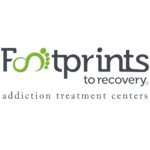Detox is usually the first step toward recovery. It is the process of eliminating drugs from your body. Some people may consider attempting detox at home, as they believe it will be more comfortable. Certain drugs, including opioids and benzodiazepines, can be dangerous to stop cold turkey.
If you are thinking about detoxing from drugs at home, there are several risks to consider. Depending on the substance, some risks are more dangerous than others. It’s important to understand the potential dangers and consequences of home detox before attempting this process on your own.
What Is Home Detox?
When you detox at home, you completely quit all drug use while remaining in your home environment as a first step of recovery. However, when you detox at home, you are usually going at it alone, without professional guidance. Medical professionals do not usually recommend home detox due to the dangerous complications that can arise during the process.
In some cases, severe complications can be deadly without assistance and supervision from medical or addiction professionals.
Here Are Some of the Risks of Home Detox
The risks of home detox vary depending on the substance used, as well as other mental and physical health challenges, how long you have been using, and whether you have had severe withdrawal symptoms in the past.
Opiates
Opioids include synthetic varieties like fentanyl, legally prescribed pain relievers, and heroin. Detoxing at home from opiates is a highly uncomfortable process without the right type of medicated assistance. Tapering off opioids can help ease your discomfort during the process.
Withdrawal symptoms for opioids are similar regardless of type and may include the following:
- Yawning and difficulty sleeping
- Runny nose, sneezing, and watery eyes
- Shaking and tremors
- Diarrhea and other gastrointestinal problems
- Nausea and vomiting
- Lack of appetite
- Cravings
- Hot and cold flashes
- Anxiety
- Irritability and anger
- Sweating
- Headaches
Pain is also common during opiate withdrawal, especially joint, muscle, or bone pain. The primary concern with detoxing from opiates at home is whether the discomfort will prompt a relapse. Although opioid withdrawal is not usually life-threatening, it can be if you have additional medical problems like hypertension or a heart condition.
Hallucinogens
Hallucinogens are drugs that cause distortions in the perception of place, sounds, and time. These alterations can affect your thoughts, mood, and other changes. Hallucinogens include MDMA (ecstasy), LSD, synthetic hallucinogenic drugs, and mushrooms containing psilocybin. Persistent use of hallucinogens can cause long-term changes in the brain. Because of the wide variety of hallucinogenic drugs, each works somewhat differently and may cause variations in withdrawal symptoms. However, typical symptoms of detox from hallucinogens include:
- Lethargy
- Irritability
- Confusion
- Anxiety
- Headaches
- Sweating
- Depression
The first few days of hallucinogen detox are the most difficult. Your frequency of use and amount used will affect the detox process. While some people may feel sick for several days while detoxing, others may recover quickly. Severe withdrawal symptoms can also occur with hallucinogens.

Benzodiazepines and Other Sedatives
Benzodiazepines are medications that treat symptoms associated with insomnia and anxiety. These sedatives include Valium, Xanax, and Ativan. Similar to alcohol withdrawal, withdrawing from benzos can be dangerous without proper supervision and medical treatment. Home detox is not advisable as these symptoms may become life-threatening, especially if you attempt to quit “cold turkey.” Most professionals recommend tapering off benzodiazepines.
Withdrawal symptoms associated with benzos include:
- Confusion
- Anxiety
- Anger or irritability
- Insomnia and nightmares
- Increased heart rate
- Rapid breathing
- Seizures
- Loss of appetite
- Headaches
- Tinnitus
- Sweating
- Nausea and vomiting
- Depression
- Panic attacks
These symptoms are associated with mild to moderate benzodiazepine withdrawal. Severe withdrawal symptoms may also occur, especially with heavier use. These symptoms include:
- Delusions and hallucinations
- Memory loss
- Grand mal seizures (Tonic-clonic seizures)
- Hypertension
- Paranoia
The longer you’ve taken benzodiazepines, the worse your withdrawal symptoms may be, making it harder to stop. For some people, their symptoms may be similar to delirium tremens. Benzodiazepine withdrawal syndrome can begin within 1-4 days and cause significant anxiety. Older adults, people with a history of seizures, and those who have additional dependence issues are at higher risk for dangerous withdrawal symptoms. It is not advisable to suddenly stop taking benzodiazepines without proper medical guidance.
Alcohol
Detoxing from alcohol at home can be fraught with risks, particularly for those who have been heavy drinkers or have a long history of alcohol use. The body becomes dependent on alcohol over time, and suddenly stopping can lead to severe withdrawal symptoms that are not only uncomfortable but can also be life-threatening.
One of the most significant risks is the development of Delirium Tremens (DTs), a severe form of alcohol withdrawal. Symptoms of Delirium Tremens include:
- Confusion
- Rapid heartbeat
- Fever
- Hallucinations
- Seizures
Without medical supervision, these seizures can be fatal. Moreover, hallucinations, both auditory and visual, can lead to self-injury or harm to others as the individual may not be able to distinguish reality from their hallucinations.
Other risks of detoxing from alcohol at home include:
- Dehydration
- Nutritional deficiencies
- Anxiety
- Depression
- Suicidal thoughts or actions
While the idea of detoxing at home might seem appealing due to its privacy or cost-effectiveness compared to professional treatment facilities, it carries significant health risks.
It’s crucial for individuals seeking recovery from alcohol dependence to consult healthcare professionals who can guide them through a safe detox process in a controlled environment where both physical and psychological needs are addressed comprehensively.
Knowing When To Seek Help
Although the first symptoms of detox from any substance may initially seem tolerable, they can suddenly increase in intensity and severity. Opiates and benzodiazepines, in particular, can be challenging to withdraw from, which may increase your temptation to use. Although it is ill-advised, many people try detoxing from drugs at home. If you experience any of the following symptoms during home drug detox, get medical assistance immediately:
- Fever
- Tremors
- Irritability
- Visual or auditory hallucinations
- Disorientation or confusion
- Seizures
While seizures may become deadly without medical intervention, powerful hallucinations can increase your chances of doing something to harm yourself or someone else. When detoxing from drugs, you should always do so under the guidance of medical professionals.
What Is Medically Supervised Detox Like?
Medically supervised detox starts with a complete evaluation and assessment of your current withdrawal symptoms and a thorough check of your vital signs to determine your detox support needs. This information helps us create an appropriate detox plan to ensure your comfort and safety. Medically supervised detox includes:
- Monitoring of vitals
- Administration of medication when necessary
- Medical treatment and emergency care for withdrawal-related complications
- Tapering schedules, depending on the substance used
After symptoms subside and your health stabilizes, you will transition to your next phase of treatment, which may include inpatient treatment, outpatient services, or other programs, depending on your care plan.
Medically managed detox is usually your first step in the addiction recovery process. You are not weak if you are struggling to stop using drugs on your own. Withdrawal symptoms are often complex and nearly impossible to handle alone without the proper professional support.
Here at Footprints to Recovery, your safety and well-being during withdrawal from drugs and alcohol are our top priority. If you are ready to overcome your struggles with drugs or alcohol with medically supervised detox, give Footprints to Recovery a call. We can help you successfully and safely complete the detox process so you can start your recovery journey.
- Linking opioid-induced hyperalgesia and withdrawal-associated injury site pain: a case report – PMC
- Opioid Impacts on Cardiovascular Health – PMC
- Genetic Determinants of Severity of Acute Withdrawal From Diazepam in Mice: Commonality With Ethanol and Pentobarbital – ScienceDirect
- The benzodiazepine withdrawal syndrome – PubMed
- Long-term use of psychedelic drugs is associated with differences in brain structure and personality in humans – PubMed




